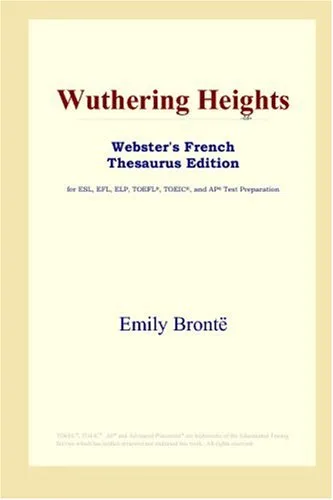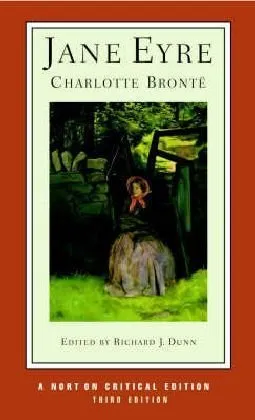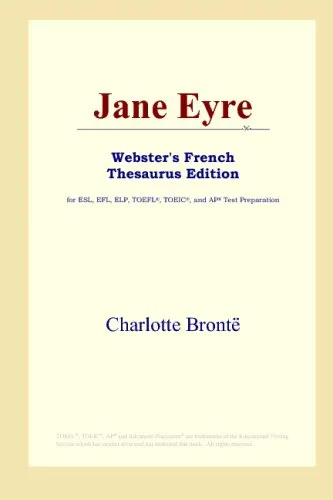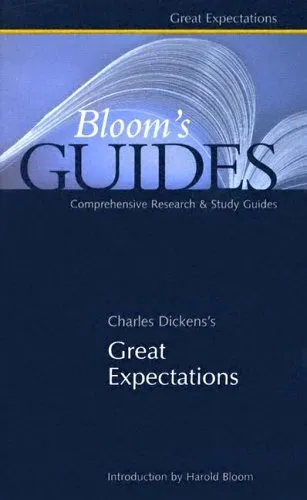Wuthering Heights by Emily Brontë
4.0
Reviews from our users

You Can Ask your questions from this book's AI after Login
Each download or ask from book AI costs 2 points. To earn more free points, please visit the Points Guide Page and complete some valuable actions.Related Refrences:
Persian Summary
Introduction to Wuthering Heights by Emily Brontë
Emily Brontë's "Wuthering Heights" stands as one of the most dynamic and haunting novels in English literature. Written in 1847, this gothic masterpiece explores themes of love, revenge, and the destructive nature of obsession. The complex characters and the eerie atmosphere make it a lasting exploration of the human condition, resonating with readers across generations.
Detailed Summary
Set against the stark and wild moors of Yorkshire, "Wuthering Heights" presents a tale of passionate love and revenge that spans three generations. The story begins with Mr. Lockwood, a new tenant at Thrushcross Grange, who visits his reclusive landlord, Heathcliff, at Wuthering Heights. Through Ellen (Nelly) Dean, the housekeeper, Lockwood learns of the tumultuous past that binds the two families, the Earnshaws and the Lintons, to the brooding Heathcliff.
Heathcliff, an orphan brought to Wuthering Heights by Mr. Earnshaw, grows up alongside Earnshaw’s children, Hindley and Catherine. Heathcliff and Catherine develop an intense and devouring love, but circumstances and social constraints lead Catherine to marry Edgar Linton, a wealthy neighbor. Heathcliff’s unbridled passion turns into a vengeful quest when he inherits Wuthering Heights and manipulates the lives of everyone around him.
The novel explores themes of love’s destructive nature, social class, and the conflict between nature and culture, using a narrative structure that layers stories within stories, much like a gothic mansion with countless hidden rooms.
Key Takeaways
- Exploration of Passion: The novel delves deeply into the raw and untamed nature of love, showing how it can transcend rationality and social norms, yet often leads to tragedy.
- Social Class and Power: Questions of social hierarchy and the pursuit of power are central to the characters’ interactions and conflicts, highlighting the societal constraints of Brontë's time.
- The Gothic Atmosphere: The stormy moors and eerie settings enhance the novel's dark themes, creating a backdrop that epitomizes the gothic genre.
- Complex Characters: Each character is driven by powerful emotions and desires, making them multifaceted and often morally ambiguous.
Famous Quotes
"Whatever our souls are made of, his and mine are the same."
"I am Heathcliff! He's always, always in my mind: not as a pleasure, any more than I am always a pleasure to myself, but as my own being."
"I have not broken your heart - you have broken it; and in breaking it, you have broken mine."
Why This Book Matters
"Wuthering Heights" is not merely a tale of romance; it is a profound study of humanity's darkest emotions. Emily Brontë's singular work showcases her extraordinary ability to infuse a narrative with an unrivaled sense of place and character. The novel's bold embrace of unbridled emotion and its timeless themes of love and vengeance have inspired countless adaptations and critical discussions, cementing its place in the literary canon. Its unabating popularity highlights not only Brontë's storytelling genius but also the universal quest for understanding the complexities of love and the human psyche.
Ultimately, "Wuthering Heights" matters because it challenges readers to confront the unsettling forces within themselves and in society, encouraging deep reflection and a genuine appreciation for the power of storytelling.
Free Direct Download
You Can Download this book after Login
Accessing books through legal platforms and public libraries not only supports the rights of authors and publishers but also contributes to the sustainability of reading culture. Before downloading, please take a moment to consider these options.
Find this book on other platforms:
WorldCat helps you find books in libraries worldwide.
See ratings, reviews, and discussions on Goodreads.
Find and buy rare or used books on AbeBooks.
1609
بازدید4.0
امتیاز0
نظر98%
رضایتReviews:
4.0
Based on 0 users review
Questions & Answers
Ask questions about this book or help others by answering
No questions yet. Be the first to ask!












